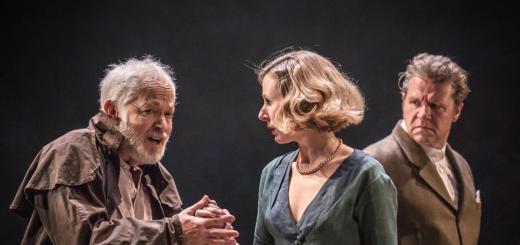If you take the oral part of the OGE in English, then you will have to go through the so-called conditional dialogue. On this page we present all the dialogues from the open database of the Federal Institute of Pedagogical Measurements (FIPI) and provide complete answers to each question in these dialogues. Now, in order to successfully pass the oral part of the OGE in English, you just need to memorize the ready-made answers.
Of course, you can change our options as you please, improving the content and language aspects.
All dialogues have the same preamble:
You are going to take part in a telephone survey. You have to answer six questions. Give full answers to the questions. Remember that you have 40 seconds to answer each question.
This means you are taking part in a telephone survey. You are asked six questions to which you must provide complete answers. You are given 40 seconds to answer each question.
Each dialogue is dedicated to a specific topic. These are the topics and dialogues:
Dialogue “How teenagers feel about their school”
Play dialogue
Hello, it’s the electronic assistant of the education council. We kindly ask you to take part in our survey. We need to find out how teenagers feel about their school. Please answer 6 questions. The survey is anonymous. You don't have to give your name. So, let's get started.
– How many lessons do you usually have?
Answer: I usually have six lessons a day. But on Tuesday I have an extra English lesson to prepare for the exam.
– What subject do you find the most difficult?
Answer: I find mathematics the most difficult subject because I often get confused with so many formulae. And frankly speaking, I lack motivation for this subject because I don’t relate my future career to mathematics.
– What is your favorite weekday? Why do you like it?
Answer: Well, my favorite weekday is Sunday. I like it because there is no school on this day. Sometimes, my friends and I have parties on Sunday, or we go to the cinema or theater.
– What sport facilities do you have in your school?
– Do you think school uniform is necessary, or not. Why do you think so?
Answer: As for me, I think school uniform is necessary because it makes schoolchildren more disciplined and focused on the study. If schoolchildren are allowed to wear whatever they want, they put on ripped jeans, T-shirts of different colors and what not. It is like they come to school to have a ball, but not to learn.
– What would you recommend your friends do to improve their English?
Answer: I would recommend them to watch English lessons made by native speakers on youtube. They are very exciting and easy to understand. In addition to it, I would recommend my friends to read English books, because reading makes your vocabulary richer.
Dialogue “What teenagers think about the modern film industry”
Play dialogue
Hello, it’s the electronic assistant of the film center. We kindly ask you to take part in our survey. We need to find out what teenagers think about the modern film industry. Please answer 6 questions. The survey is anonymous. You don't have to give your name. So, let's get started.
– How often do you go to the cinema?
Answer: I usually go to the cinema once or twice a month. In summer I go oftener because I have vacations and a lot of free time.
– What kinds of films do you like most?
Answer: I like science-fiction films most because they are full of ideas to think about, and these films have more visual effects.
– Why do you think many people prefer watching films at home?
Answer: Many people prefer watching films at home for a number of reasons. The main reason is that they can download films from the Internet for free. In addition to it, they can stop the film at any moment and then start again.
– What do you like to do in your free time?
Answer: Frankly speaking, I don’t have much free time because I have to prepare for the exams. Anyway, I like surfing the Internet very much. I usually watch videos, communicate with friends in social networks, and so on.
– How can films in English help students improve their English?
Answer: First of all, films in English help students improve their listening skills. You gradually get accustomed to the variety of accents, slurring of words, slang, and the like. If you find difficulties in understanding English, you can use subtitles.
– What film would you recommend your friends see, and why?
Answer: I would recommend my friends to watch sitcoms. For example, How I Met Your Mother. Firslty, this sitcom is very funny. As for me, I can’t help laughing when watching it. Secondly, this sitcom has a lot of real spoken English.
This is the end of the survey. Thank you very much for your help.
Dialogue “Teenagers reading habits”
Play dialogue
Hello, it’s the electronic assistant of the city library. We kindly ask you to take part in our survey. We need to find out about teenagers reading habits. Please answer 6 questions. The survey is anonymous. You don't have to give your name. So, let's get started.
– What kinds of books do you like to read?
Answer: As for me, I like to read science fiction books because they are full of ideas to think about. Science fiction writers help us to imagine the future world, and they make us more broad-minded.
– Who is your favorite writer?
Answer: Actually, I have two favorite writers, they are the brothers Arkady and Boris Strugatsky. I strongly believe they were the greatest Soviet-Russian science fiction authors whose works are just awesome.
– How often do you borrow books from the library?
Answer: Frankly speaking, I don’t borrow books from the library at all. As a rule, I buy and download books from the Internet. I think it is more convenient than going somewhere to borrow a book. I am sure more and more people will do like that in the nearest future.
– Why do yon think teenagers are reading less and less now?
Answer: Actually, I don’t think so at all. In my opinion, it’s the other way round. Teenagers like reading very much, but they prefer reading e-books to paper-books. To download and read an e-book, they just need a smartphone. They don't need to go to libraries any more.
– How can reading English books help students improve their English?
Answer: First of all, reading English books enriches students’ vocabulary. For example, fiction books include words and phrases of different styles. When reading a fiction book, you deal with basic vocabulary, slang, set expressions, and the like. In addition to it, you pick up some grammar as well.
– What book would you recommend to your friend who wants to read something for pleasure and why?
Answer: I would recommend books about Sherlock Holmes by Agatha Christie. It is not difficult to read and understand these books. Besides, the plot of Sherlock Holmes stories is splendid.
This is the end of the survey. Thank you very much for your help.
Dialogue “What teenagers think about shopping and shopping centers”
Play dialogue
Hello, it’s the electronic assistant of the new supermarket net. We kindly ask you to take part in our survey. We need to find out what teenagers think about shopping and shopping centers. Please answer 6 questions. The survey is anonymous. You don't have to give your name. So, let's get started.
– Who usually does the shopping in your family?
Answer: My mother usually does the shopping in our family, but each of us helps her to do this. At the weekend, we do the shopping all together.
– What can you buy in your nearest shopping center?
Answer: You can buy whatever you want. There is a lot of groceries, household chemicals and appliances, clothes, handicrafts, perfumes, and so on. The nearest shopping center is really big, and if you go there, you are sure to find a thing to your liking.
– How often do you usually go shopping?
Answer: I usually go shopping once or twice a week. Sometimes I go oftener if my parents ask me to.
– Why are shopping centers so popular nowadays?
Answer: Shopping centers are popular nowadays because people can buy there different goods at the same time and place. If you want to buy some meat and fruit, you don’t need to go to butcher shop and fruit shop separately. You go to one place and do the shopping.
– Why do some people hate shopping?
Answer: Some people hate shopping because they don’t have money enough to buy everythng they need. So, they have to decide about what to buy. Making a decision is always a hard thing.
– What time do you recommend busy people go shopping?
Answer: I recommend busy people go shopping in the morning, because shops are not overcrowded at this time.
This is the end of the survey. Thank you very much for your help.
Dialogue “How teenagers prefer to spend their free time”
Play dialogue
Hello, it’s the electronic assistant of the free time club. We kindly ask you to take part in our survey. We need to find out how teenagers prefer to spend their free time. Please answer 6 questions. The survey is anonymous. You don't have to give your name. So, let's get started.
– How much free time do you have on weekdays?
Answer: As for me, I don’t have much free time, because I have to go to school on weekdays. In addition to it, I do an optional course to prepare for the English exam. So, free time on weekdays is out of the question.
– How do you and your friends usually spend your free time?
Answer: We enjoy going to the cinema and watching brand-new blockbusters together. After the cinema, we go to a café and have some time there drinking juice, eating cakes, and discussing the film. We also like to arrange parties.
– Who do you prefer to spend your free time with?
Answer: It goes without saying that I prefer to spend my free time with my friends, because we are of the same age, understand each other, and have similar interests.
– What after school activities do you take part in?
Answer: As for me, I like sport very much. So, I go to the swimming pool twice a week. In addition to it, I regularly go to the gym and work out with weights.
– Do you think everyone should find some time for doing sports? Why?
Answer: I strongly believe that everyone should find some time for doing sports. Absolutely! If you don't take enough exercise, you gradually become weak both physically and psychologically. Weak people won't get anywhere.
– What hobby would you do if you had more free time?
Answer: If I had more free time, I would learn Spanish. It is one of the most popular world languages, which is spoken in a number of countries by lots of people. In addition to it, Spanish sounds magical.
This is the end of the survey. Thank you very much for your help.
Dialogue “How teenagers spend their holidays”
Play dialogue
Hello, it’s the electronic assistant of the teenagers’ travel club. We kindly ask you to take part in our survey. We need to find out how teenagers spend their holidays. Please answer 6 questions. The survey is anonymous. You don't have to give your name. So, let's get started.
– What is your favorite season?
Answer: My favorite season is summer. I have vacations in summer and much free time. In addition to it, the weather is warm, and it is sunny.
– Where do you usually spend your summer holidays?
Answer: Frankly speaking, my parents and I usually try to leave home for some other place. If you live the whole autumn, winter, and spring in the same surroundings, you are really fed up with them, and you need a change. For example, we went to Lake Baikal, last summer, and lived in a small village at the lake.
– What do you like to do during your winter holidays?
Answer: As I try to keep fit, I like skiing very much. My friends and I go skiing almost every day during our winter holidays. But if the weather is too frosty, we go to the gym and work out properly.
– How often do you and your family travel?
Answer: As I have just mentioned above, my family and I travel every summer. So, we travel once a year without fail. We like to travel both abroad and within this country. It depends on money, you know.
– What type of transport do you find the most convenient? Why?
Answer: As for me, I think the planes are the most convenient, because they are the fastest kind of transport. It takes you a few hours to get to a distant city, while it takes a number of days by some other transport.
– What place in your country would you recommend a foreign tourist to visit? Why?
Answer: I would definitely recommend a foreign tourist to visit Moscow, because it is the greatest center of cultural, economical, political life of Russia. There are lots of sights worth seeing here, and various events take place in Moscow every day.
This is the end of the survey. Thank you very much for your help.
Dialogue “If teenagers are worried about environmental problems”
Play dialogue
Hello, it’s the electronic assistant of the magazine “Green future”. We kindly ask you to take part in our survey. We need to find out if teenagers are worried about environmental problems. Please answer 6 questions. The survey is anonymous. You don't have to give your name. So, let's get started.
– Where would you like to live – in a big city or in the country?
Answer: I would like to live in a big city. The main reason is that a big city has much more opportunities for personal development and making a successful career. So, as for me, living in the country is out of the question.
– What are the advantages of living in the country?
Answer: It goes without saying, that the environment is much better in the country than in a big city. The air is fresher and the water is cleaner. So, these are definite advantages of living in the country.
– What is the main ecological problem in a place where you live?
Answer: There is a number of ecological problems in my city, but I think the main problem is polluted sea. That’s the way it is not advisable that you swim or take drinking water here.
– Do you and your friends care about environmental problems? Why?
Answer: Yes, we care about environmental problems very much. For example, we take an active part in the cleaning of the streets. We do it, because we want our city to change for the better. Besides, we make junior schoolchildren get concerned with environmental problems.
– Have you ever taken part in any environmental projects at school?
Answer: Yes. I have. We cleaned out the sea and collected rubbish near our school. Our school has a special program on environmental protection, and we turn it into practical deeds.
– What would you recommend to a person who wants to improve the ecological situation in his or her hometown?
Answer: There is so much this person can do. But to begin with, I would recommend to start with his or her home. He or she shouldn’t throw litter away and overuse electricity. Then, he or she should take an active part in the cleaning of the streets.
This is the end of the survey. Thank you very much for your help.
Dialogue “Teenagers’ attitude to school events”
Play dialogue
Hello, it’s the electronic assistant of teenage magazine online. We kindly ask you to take part in our survey. We need to find out teenagers’ attitude to school events. Please answer 6 questions. The survey is anonymous. You don't have to give your name. So, let's get started.
– How many classes do you usually have a day?
Answer: I usually have 6 classes a day. But on Tuesday I have en extra English class to prepare for the exam.
– What sports facilities do you have in your school?
Answer: We have a number of sport facilities in our school: a swimming pool, a gym. There is also an athletic field near the school. The junior schoolchildren enjoy swimming in the pool most of all, while the senior schoolchildren like working out with weights in the gym.
– What clubs and societies can you attend in your school?
Answer: Well, we can attend reader’s club and the scientific society in our school. In addition to it, there is a theater group giving performances in foreign languages. I am an active member of the theater group.
– What school events, like concerts and performances do you usually have during the school year?
Answer: We usually have a lot of concerts and performances during the school year. But the most exciting is the New Year performance. In addition, we have concerts to celebrate International Women’s Day and Defender of the Fatherland Day.
– Do you enjoy taking part in these school events? Why?
Answer: I sometimes enjoy taking part in the preparation process, but I never like dancing or performing on stage. I think that’s because I’m generally a shy person.
– What event would you recommend organizing and why?
Answer: I think we should organize the day of ecology. I believe this event would help students learn more about environmental problems and the ways of solving them.
This is the end of the survey. Thank you very much for your help.
Dialogue “Teenagers’ attitude to sport”
Play dialogue
Hello, it’s the electronic assistant of the sports center. We kindly ask you to take part in our survey. We need to find out teenagers’ attitude to sports. Please answer 6 questions. The survey is anonymous. You don't have to give your name. So, let's get started.
– How many lessons of PE (Physical Education) do you have a week?
Answer: I have three lessons of Physical Education a week. One lesson is on Monday, the second one is on Wednesday, and the third one is on Saturday.
– What sports facilities do you have on your school?
Answer: We have a number of sport facilities in our school: a swimming pool, a gym. There is also an athletic field near the school. The junior schoolchildren enjoy swimming in the pool most of all, while the senior schoolchildren like working out with weights in the gym.
– What sport do you do regularly?
Answer: As for me, I do swimming twice a week. I think that swimming is the best sport of all. The main thing is that it trains all groups of muscles, and it is not traumatic. In addition to it, I do tennis on Sunday.
– What winter sports are popular with you and your friends?
Answer: My friends and I go often skiing in winter. Frankly speaking, we don’t train hard, because we don’t want to be skiing champions. We do it just for pleasure.
– Would you like to do any extreme sports? Why, or why not?
Answer: I don’t want to do any extreme sports because they are very dangerous. I don’t understand people who are keen on bungee jumping, white-water rafting, and the like. You know, life and health are not the things to trifle with.
– What would you recommend to a teenager who wants to be fit?
Answer: First of all, he or she should start with simple things like doing morning exercises. Jogging is also a good option. Then, the teenager can go to a gym to work out. In addition to physical training, he or she should eat healthy food.
This is the end of the survey. Thank you very much for your help.
Dialogue “Teenagers’ daily routines”
Play dialogue
Hello, it’s the electronic assistant of the electronic magazine “Teen Web”. We kindly ask you to take part in our survey. We need to find out about teenagers’ daily routines. Please answer 6 questions. The survey is anonymous. You don't have to give your name. So, let's get started.
– When do you get up on weekdays?
Answer: As a rule, I get up at 6 o’clock on weekdays. Yes, I am an early riser. I strongly believe that early to bed and early to rise makes you healthy, wealthy, and wise.
– What do you prefer to eat for breakfast in the morning?
Answer: I prefer to eat some French toasts and drink a cup of tea. I think that breakfast shouldn’t be a substantial meal because your body is not ready to process much food in the morning.
– How long does it take you to get to school?
Answer: It takes me 5 minutes to get to school. It is just because the school is quite near. I am a lucky dog in this respect.
– What is your favorite part of the day – morning afternoon or evening? Why do you like it?
Answer: I like evenings because I can relax after a busy day. It’s the time when I usually do nothing but surfing the Internet, watching videos, reading interesting articles and commenting on them, and so on.
Answer: I usually water flowers, feed our pets, and help my mom with the shopping. My parents are very busy, so I try to help them as much as I can.
– What would you recommend for teenagers who are often late for school?
Answer: Firstly, they should go to bed earlier and have a good sleep. Teenagers often sit up late playing computer games. It is not good. Secondly, they should wake up and leave home for school earlier than usual.
This is the end of the survey. Thank you very much for your help.
Dialogue “How people feel about using their mobile phones”
Play dialogue
Hello, it’s the electronic assistant of the mobile telecom company. We kindly ask you to take part in our survey. We need to find out how people feel about using their mobile phones. Please answer 6 questions. The survey is anonymous. You don't have to give your name. So, let's get started.
– How old are you?
Answer: I’m 15 years old.
– When did you get your first mobile phone?
Answer: Well, I was 6 years old when I got my first mobile phone. My parents gave it to me as a birthday present. I was very happy.
– What do you usually use your mobile phone for?
Answer: I use my mobile phone for so many different things. I make a lot of calls, take pictures, send and receive a lot of messages, and, of course, I surf the Net.
– How do you feel when you forget your mobile phone at home?
Answer: That might seem strange, but I really feel a bit lost without my mobile phone. It’s like I’ve forgotten something very important.
– Do you think it’s right, that mobile phones are not allowed in some schools.
Answer: Well, I really think that’s not good. I believe that a mobile phone is something that is absolutely necessary, so mobiles should be allowed everywhere just in case something bad happens.
– In what places would you recommend people switch off or turn down their phones? Why?
Answer: Well, I think, a mobile phone should be turned down during classes, or any important events. We also must switch off our telephones when we are on board of the plane, as signals of the mobile networks may damage the electronic systems of the plane.
This is the end of the survey. Thank you very much for your help.
Dialogue “How people feel about using the Internet and spending time online”
Play dialogue
Hello, it’s the electronic assistant of the teen web. We kindly ask you to take part in our survey. We need to find out how people feel about using the Internet and spending time online. Please answer 6 questions. The survey is anonymous. You don't have to give your name. So, let's get started.
– How old are you?
Answer: I’m 15 years old.
– How much time do you spend on the Internet every day?
Answer: Well, it depends. I spend approximately 3 hours on weekdays, and 4 or 5 hours on Saturday and Sunday. On holidays, my parents allow me to surf the net as much as I want, without any limitations.
– What do you use the Internet for?
Answer: As for me, I use the Internet for many purposes. But frankly speaking, I mostly use the Internet to play computer games online. I also watch videos on YouTube, read interesting articles and comment on them, communicate with my friends in social nets.
– What do you do in Information Technology or Computer Studies lessons?
Answer: We have Information Technology three times a week, and we learn fundamentals of software programming. In addition to it, we learn some bits of how to deal with computer hardware. I enjoy computer science very much, that’s why I attend these lessons with greate pleasure.
– Why are computer skills useful for everyone?
Answer: Well, I believe that in the era of information technology everyone should have at least basic computer skills. That’s absolutely necessary because everything is connected with the computers nowadays. Computers make our life easier.
– What would you recommend a person who spends too much time on the Internet?
Answer: Yeah, the Internet is a kind of addiction nowadays, and many people like virtual life much more than real one. I would recommend these people to remember negative aspects of the Internet. I mean harm to health. Sitting in front of a computer for a long time is bad for your eyes and mental state.
This is the end of the survey. Thank you very much for your help.
Dialogue “Teenager’s attitude to English language learning”
Play dialogue
Hello, it’s the electronic assistant of the English club. We kindly ask you to take part in our survey. We need to find out teenager’s attitude to English language learning. Please answer 6 questions. The survey is anonymous. You don't have to give your name. So, let's get started.
– What is your favorite school subject?
Answer: Actually, I have a number of favorite subjects, but I like English most of all. I learn it with much pleasure.
– When did you start learning English.
Answer: I started learning English when I was in primary school. Well, I was 8 at that time.
– What do you do in your English lessons?
Answer: We do much you have to do to know English well. In the first place, we read and listen a lot. Then, we speak English to our teacher and to each other. We also do many tests, write reports and essays, and so on. Sometimes, our teacher organizes speaking clubs with native speakers.
– Do you find learning English easy or difficult? Why?
Answer: I find it difficult because you have to learn sophisticated grammar rules and innumerable words and phrases. Besides, it’s not easy to develop specific language skills, such as listening, writing, and speaking. Yeah, I find learning English difficult but fulfilling.
– What other foreign language would you like to learn and why?
Answer: I’d like to learn French or Spanish, because these languages are so beautiful. In addition to it, they are popular and spoken by many people all over the world.
– What would you recommend a person do to improve his or her English?
Answer: I would definitely recommend to watch films and read books in English. Chatting with native speakers also helps a lot.
This is the end of the survey. Thank you very much for your help.
Dialogue “Teenager’s attitude to TV and our TV programmes”
Play dialogue
Hello, it’s the electronic assistant of the city TV channel. We kindly ask you to take part in our survey. We need to find out teenagers’ attitude to TV and our TV programs. Please answer 6 questions. The survey is anonymous. You don't have to give your name. So, let's get started.
– What do you enjoy doing in your free time?
Answer: Actually, I enjoy doing many things. For example, I like surfing the net very much. In addition to it, I often go to the cinema to watch brand-new blockbusters. From time to time, I watch TV.
– How often do you go to the cinema or to the theater?
Answer: I usually go to the cinema once or twice a month. In summer I go oftener because I have vacations and a lot of free time. As to the theatre, I don’t go there at all.
– How much time do you usually watch TV every day?
Answer: Well, it depends. I watch TV for an hour on weekdays, when new episodes of my favorite sitcom appear. I don’t watch TV on weekend because I prefer surfing the net to watching TV.
– What TV programs are popular in your family?
Answer: Well, my parents always watch newscasts because they want to be up to date. In additon to it, they enjoy watching various talk shows. As for me, I usually watch sitcoms and, sometimes, sport.
– Do you prefer TV or the Internet? Why?
Answer: It goes without saying that I prefer the Internet. It's so much easier to find what you really like there. And it’s more convenient too, as you don’t have to wait until the program starts.
– What TV program would you recommend your friend watch?
Answer: I would recommend to watch scientific programs of National Geographic Channel. They cover lots of subjects concerning natural, cultural, and political life of different countries. In addition to it, you can watch this channel in English and improve your language skills.
This is the end of the survey. Thank you very much for your help.
Dialogue “People’s attitude to their city”
Play dialogue
Hello, it’s the electronic assistant of the city council. We kindly ask you to take part in our survey. We need to flood out people’s attitude to their city, town or village. Please answer 6 questions. The survey is anonymous. You don't have to give your name. So, let's get started.
– How long have you been living in your city, town or village?
Answer: I have been living in Sochi for 15 years. It is my native city. I was born here.
– What is the place where you live famous for?
Sochi is famous for the Olympic Games 2014. That was a grandiose occasion. In addition to it, Sochi is a first-class resort. Every year, many people come here to have a good rest.
– When was your city, town or village founded?
Answer: Frankly speaking, I am not an expert in Sochi’s history. My city has a long history, I guess. But, I know for sure that it was founded in 1896.
– What season is the best for visiting you city, town of village and why?
Answer: I thing that summer is the best time for visiting my city. There are some reasons for that. First of all, it’s very warm here in summer. You can swim in the sea, sunbathe, take long walks and enjoy beautiful buildings and nature.
– What is your favorite place in your city, town or village? Why do you like it?
Answer: My favorite place in Sochi is the sea port. It’s a magnificent building, and you can walk there breathing in the fresh sea air.
– What place in your hometown would you recommend visiting.
Answer: I would recommend going to Sochi park. It’s one of the best places in my city, where you can have fun and rest.
This is the end of the survey. Thank you very much for your help.
Dialogue “What do you think about learning foreign languages”
Play dialogue
Hello, it’s the electronic assistant of the online language school. We kindly ask you to take part in our survey. We want to find out what you think about learning foreign languages. Please answer 6 questions. The survey is anonymous. You don't have to give your name. So, let's get started.
– What foreign languages can you learn at your school?
Answer: We can learn English and German at my school. You know, my school is nothing out of the ordinary, so we don’t boast language diversity.
– How many English lessons a week do you have?
Answer: I have 3 English lessons a week. On Tuesday I have an extra lesson to prepare for the English exam.
– For what reasons do people learn foreign languages nowadays?
Answer: People learn foreign languages for different reasons. Some just like speaking foreign languages, others need to know them for work. Many people like traveling, and they learn the language of the country they are going to visit.
– What is the most effective way to learn a foreign language in your opinion?
Answer: In my opinion, attending a language school is the most effective way to learn a foreign language. Firstly, you have a set schedule, and you are not allowed to miss lessons. Secondly, you always have a partner to speak to and a teacher to consult.
– Do you think English would be useful for you in the future? In what way?
Answer: Well, I’d like to become an interpreter, so I really think English will be very useful for me in the future, as it will be a part of my profession.
– What would you recommend your English speaking friend learn? Why?
Answer: I would recommend to learn Russian because, I am sure, it will be one of the main world languages of the future. The whole world is getting more and more interested in establishing contacts with the Russian Federation, that’s why the Russian language is becoming more and more popular.
This is the end of the survey. Thank you very much for your help.
Dialogue “School students’ daily routines”
Play dialogue
Hello, it’s the electronic assistant of the health center. We kindly ask you to take part in our survey. We need to find out about school students’ daily routines. Please answer 6 questions. The survey is anonymous. You don't have to give your name. So, let's get started.
– What time do you usually go to bed in the evening?
Answer: I usually go to bed at 10 p.m. on weekdays. On Saturday I go to bed later, because I can’t help sittng up at my computer and playing online games.
– How much time do you spend doing your homework?
Answer: I usually spend about 3 hours doing my homework. I am always very serious about my homework, and I am convinced it is an important part of students’ study.
– What sports do you do regularly?
Answer: I play tennis 2 times a week. In addition to it, I like swimming very much.
– What do you do to help your parents about the house?
Answer: Frankly speaking, I don’t have much time to help my parents about the house, because I have to study for the exams. Nevertheless, I always wash the dishes and mop the floor. Sometimes I help my mother about the shopping.
– How do you spend your weekends?
Answer: I usually spend weekends with my friends. We often go to the cinema to watch a new blockbuster. After the cinema we go to a café to relax and discuss the film. My friends and I also arrange parties on weekends.
– What would you like to change in your daily routine?
Answer: I would really like to have more time for my swimming classes. But it’s impossible these days because I have to study excessively for the exams.
This is the end of the survey. Thank you very much for your help.
Dialogue “What do you think about your school”
Play dialogue
Hello, it’s the electronic assistant of the magazine “School life”. We kindly ask you to take part in our survey. We want to find out what you think about your school. Please answer 6 questions. The survey is anonymous. You don't have to give your name. So, let's get started.
– What grade are you in?
Answer: I’m in 9th grade.
– How many classes a day do you usually have?
Answer: I usually have 6 classes a day. On Tuesday I have an extra English class to prepare for the exam.
– What sports facilities are there in your school?
Answer: We have a number of sport facilities in our school: a swimming pool, a gym. There is also an athletic field near the school. The junior schoolchildren enjoy swimming in the pool most of all, while the senior schoolchildren like working out with weights in the gym.
– What is your school uniform like?
Answer: In my school we wear black and white uniform. The boys have to wear black trousers and white shirts, the girls have to wear black skirts and white blouses. It goes without saying that some variations are possible, but the set style is just like I have just described.
– What school events do you have during school year?
Answer: Well, during my school year we celebrate a number of events. For example, Teachers’ Day, New Year’s Day, Victory Day, and others. We usually give concerts, arrange parties and do a lot of other things to celebrate them.
– What would you like to improve in your school?
Answer: It goes without saying that much can be improved in my school. Well, I would really like our PE lessons to be more diverse. As a rule, we play volleyball during the lessons and that’s all. Why not to do yoga or aerobics?
This is the end of the survey. Thank you very much for your help.
Dialogue “How people feel about doing sports in our region”
Play dialogue
Hello, it’s the electronic assistant of the “Dolphin” sports club. We kiudlv ask you to take part in our survey. We need to find out how people feel about doing sports in our region. Please answer 6 questions. The survey is anonymous. You don't have to give your name. So, let's get started.
– How old are you?
Answer: I’m 15 years old.
– How many times a week do you do sports?
Answer: I do sports about three times a week. I try to do it regularly because I am convinced that sport makes people healthier and happier.
– What sport is the most popular with teenagers in your region?
Answer: It is difficult to say for sure because there are so many sports clubs in our region. Nevertheless, I think body-building and weight-lifting are the most popular with teenagers. You know, quite a lot of young people want to have a perfect body that’s why they go to a gym to work out with weights.
– What sports facilities are available in the place where you live?
Answer: In my neighborhood there are a lot of stadiums, swimming pools, and gyms. That is really true that our response has a great deal of sports facilities.
– Why do you think it is important to keep fit?
Answer: It is very important to keep fit because it helps you to get physically and mentally stronger. Weak people are always loosers. If you want to be a winner, you should go in for sports and become strong.
– What would you advise a person who wants to keep fit?
Answer: I would recommend to start with doing morning exercises and eating healthy food. Of course, people should stay away from bad habits like smoking, and drinking alcohol.
This is the end of the survey. Thank you very much for your help.
The most popular dialogue in English is the meeting dialogue. After all, it is then that a dialogue occurs when we meet a person we know. Often, it is with such a dialogue that learning English begins.
We have already studied. Now let's look at a full-fledged dialogue during a meeting.
As a rule, a dialogue at a meeting begins with the words Hello or Hi. However, remember that the word Hi, which translates as “hello,” is more informal, meaning it’s a better way to greet a friend or acquaintance. It is better to speak to a stranger or a person you barely know Hello, which translates as “hello.”
After greeting, the rule of polite tone is to ask how the interlocutor is doing.
How are you? How are you?
The short form is also used: How’re you?
How are you doing? How are you doing? How are you doing?
This way you can already get small dialogues:
Hi! How're you? Hello! How are you?
- I’m also good. Thank you. Also good. Thank you.
Hi! How are you doing? Hello! How are you?
- Good, thank you. Yourself? Very good thanks. How are you?
- Very well, thanks. Very good thanks.
The question "Yourself?" translated as “And you?” "And how are you?". This word used after answering a question. In order not to repeat the same question completely, the question “Yourself?” is used. For example:
-Have you seen the movie “Godzilla”?
- Yes. And you?
How's your father? How is your father doing?
How's your mother? How is your mother?
How's your husband? How is your husband doing?
How's your wife? How is your wife doing?
How are your kids? How are your children?
How's Oleg? How is Oleg doing?
How's Maxim? How is Maxim doing?
How's Masha? How is Masha doing?
Thanks to these simple phrases we can expand our dialogue.
- I’m good, thanks. Yourself? OK, thank you. How are you?
- Good. How's Olga? Fine. How is Olga doing?
- She's good. Fine.
- How's your mother? How is your mother?
- She's good. Fine.
- How’s your job? How's your work?
- It's good. Thanks for asking. Fine. Thanks for asking.
The phrase “Thanks for asking” is a polite response when someone is interested in your affairs, family, problems, etc. The phrase is translated as “thank you for being interested, asking.”
Very often during a meeting the question “What’s new?” is heard in dialogue. This is a way to continue the dialogue.
What's new? What's new? What's new?
What's up? What's happening?
With these simple questions we can further increase our dialogue.
Hi, Olga! What's up? Hi Olga! How are you?
- I just got a new job! I just found a new job!
- Really? That's great! Good luck with your new job! Is it true? Great! Good luck with your new job!
- Thanks. Thank you.
We can use the following phrases for dialogue with a person whom we have not seen for a long time.
It's been a long time! How've you been? Long time no see! How have you been all this time?
I haven’t seen you around lately. Where have you been? I haven't seen you lately. Where have you been)? (Where have you been?)
It’s been ages since I last saw you! This phrase can be translated into Russian by the famous Russian phrase: I haven’t seen you for a hundred years!
It is so good to see you! It's so great to see you! (So great to meet you!)
Thanks to these phrases, our dialogue continues to expand.
Hi, Sveta! Is that you? It's been a long time! How've you been? Hello, Sveta! Is that you? Long time no see! How are you
- I'm fine. Yourself? Wonderful! And you?
- Good, thanks. It is so good to see you! You look great! You haven't changed a bit! OK, thank you. You look great. You haven't changed at all!
- Neither have you. So, how's life? What's new? You haven't changed either. What's up? What's new?
- I’m good, thanks. OK, thank you.
Marina! Hello! Marina! Hello!
- Hi! How are you? Hello! How are you?
- Good, thanks. You look great! It's been ages since I last saw you. OK, thank you. You look beautiful! I haven't seen you for a hundred years.
- Three years exactly. Three years, to be exact.
- Right. You haven't changed a bit! So, what's up? What's been happening in your life? Right. You haven't changed at all. Well how are you? What's happening?
- Not much has been going on. Same old, same old. Nothing much happened. Everything is the same.
The last phrase "Same old, same old" is an idiom. It is used very often in English. Translated into Russian as “Everything is the same”, “Everything is the same”, “Everything is the same”.
Thanks to the phrases we have given above, we can get
Meeting and greetings are almost always the first topic of any meeting. Essentially, this topic is represented by a number of popular phrases, which are then practiced in dialogues and exercises. Let's list all the basic greeting and introduction phrases in English.
Greetings
 Continuing the conversation
Continuing the conversation
- How are you?- How are you?
- How are you doing?- How are you?
- Hi! What's up?- Hello! What's up? (American slang)
- What's the news?- What's New?
- I'm fine/great. Thanks! - Fine. Thank you!
- So-so. - So-so.
- Nothing good.- Nothing good.
- I'm OK. And you?- Fine. And you?
- Very well, thank you. / I am all right, thank you. — Thanks, very good.
Acquaintance

Questions when dating

Parting

Now, after learning the basic wording of greetings, introductions and farewells in English, you will be able to model any greeting dialogues. Let's look at some examples of English dialogue.
Dialogue 1.
- Hi, my name’s Andrew. What's your name?
- Hi, my name's John. Nice to meet you, Andrew.
- Nice to meet you, too. John, how are you?
- I’m fine, thank you. How are you?
- I’m fine, too. OK, I must be going now. It's been nice talking to you.
- Yeah. It's been nice talking to you. See you.
- See you. Bye.
Dialogue 2.
Hello.
- Hello.
- What is your name?
- My name is Dima. What is your name?
- My name is Liza. I'm from Russia. Where are you from?
- I'm from England. What do you do, Dima?
- I am a teacher. And you?
- I am a doctor.
- I was very glad to meet you, but I am in a hurry. Here is my number, call me 84956351405. Goodbye.
- Ok. Thanks, see you soon.
Knowing English is very good. But it’s not enough to know individual words in order to compose phrases with them; you need to connect your speech in such a way that it can turn into a high-quality dialogue. Agree, every day we compose dialogues, whether we want it or not. In the store, at work, in transport, on the street... Communication is needed everywhere. And it will be strange if people communicate chaotically, that is, answer questions with words that they know, and not those that are appropriate in a given situation. If you are a beginner and just starting to learn the English language, then we bring to your attention dialogues in English for beginners that will help you easily communicate with people even with a minimum vocabulary.
On a note! We don't want you to learn dialogue automatically. A student studying the material must understand what he is learning. That's why we've provided a translation for every dialogue to make your learning process easy.
Popular dialogues in English for beginners
Dialogues in English can be different. The higher your level of English, the more colorful and meaningful the dialogue. But, if you are just starting out, we recommend learning the basic basics of communication, which will later serve as the foundation for building a more extensive conversation. So, let's start with topics that you can easily study with a little vocabulary. But how can you learn dialogue in English without it slipping out of your head the next day? First you need to pay attention to the most common topics. The most popular: about the weather, in a store (grocery, with clothes), in a cafe/restaurant, about plans for a vacation or weekend, etc. Let's start with these. When you can speak fluently on the above topics, you can begin to conquer new heights.
Where do we start? From dating! It would be ridiculous if you see a person for the first time and don’t know where to start a conversation with him. Therefore, we offer a simple dialogue so that a person’s first impression of you is positive =>
- Hello! How are you?
- Hi! I am fine, thanks! And how are you?
- Fine! I am Yulia. What is your name?
- I am Lily, nice to meet you.
- Nice to meet you too.
- Are you from Barcelona?
- No, I am from London. And you?
- I am from Russia. Nice to meet you in Spain!
- Hello! How are you?
- Hello! OK, thank you! And how are you?
- Great! I am Yulia. And what is your name?
- My name is Lily, nice to meet you.
- It's nice to meet you too.
- Are you from Barcelona?
- No, I'm from London. And you?
- I'm from Russia. Nice to meet you in Spain!
The first step has been taken - you have met the person. What's next? If you don’t know your interlocutor at all, how to continue the conversation? The ideal way out of the situation is talk about the weather. This topic is always relevant and has never let anyone down. Let's consider a dialogue that will help you in further communication =>
- Hello Maria! You look great today!
- Hi Jane! Thank you! It’s very warm today, isn’t it? So I have decided to put on my new dress.
- Yes, the weather is lovely, as well as your new dress. But have you heard about the rain this afternoon?
- Yes, I've heard about that. But that's okay. I have an umbrella.
- Oh, you are lucky, but I have no umbrella. I need to go back home to take it.
- Yes, be quick. Look, the sky is already full of clouds.
- I run. Bye, see you later.
- Hello, Maria! You look very good today!
- Hello Jane! Thank you! It's warm today, isn't it? So I decided to wear my new dress.
- Yes, the weather is great, and so is your new dress. But did you hear about the rain this afternoon?
- Yes, I've heard about it. But everything is fine. I have an umbrella.
- Oh, you're lucky, and I don't have an umbrella. I need to go home and get it.
- Yes, come on faster. Look, the sky is already overcast.
- I am running. Bye, see you later.
- Bye!
Next, we suggest learning English dialogue, dedicated to cafes and restaurants. At lunch we hold business meetings (and English ones too), communicate with friends and colleagues, many drink morning coffee in public places, and in general, we spend a lot of time in cafes and restaurants. On weekends, on vacation, after work, before an important meeting... We go for lunch with friends and colleagues, for dinner with family and business partners. Knowing what to say is extremely important in order to create the impression of an educated, cultured and literate person.
Consider a dialogue in a restaurant:
- A: Are you ready to order?
- Q: Yes, I’ll have the fillet steak.
- A: How would you like your steak?
- Q: Rare, please. And I’d like a glass of red wine, and some mineral water.
- A: Still or sparkling?
- In: Sparkling.
- A: Fine.
Note! In everyday conversations there may be aphorisms, for example, I am hungry as a hunter, which means I'm hungry like a wolf. Color your dialogue bright phrases using such expressions!
And one more thing: you can use quotes from famous people or with a bit of irony in your conversation. But... if you are not sure, we recommend abandoning this idea. When you say an aphorism or quote, you must be 100% sure of the accuracy of the meaning.
- Are you ready to order?
- Yes, I'd like a steak.
- What kind of roast?
- With blood, please. As well as a glass of red wine and mineral water.
- With or without gas?
- With gas.
- Fine.
To remember simple dialogues, we recommend saying them mentally every time, for example, when you go to a cafe or restaurant. When you order something, say it in English. This will be great practice. If you don’t know a word, write it down in a notebook and be sure to look at the translation at home. Order different dishes each time to learn more! And expand your vocabulary every time.
Here are a couple more dialogues related to everyday life:
We're going to the cinema.
- A: So... what’s on at the cinema?
- B: There’s a film on called “Mission Impossible”.
- A: What kind of movie is it?
- B: It’s an action film. It’s about an agent of the IMf and his mission to uncover a plot. It has good reviews.
- A: OK. Who's in it?
- B: It stars Tom Cruise.
- A: I like Tom Cruise – he’s a good actor. And where's it on?
- B: The Karo cinema.
- A: OK. Let's go and see it.
- B: Great!
- What are they showing in the cinema now?
- The movie Mission: Impossible is showing now.
- What genre is this?
- This is an action movie. The film is about an agent of a secret organization and his mission to uncover a conspiracy. It has good reviews.
- Okay, who's playing?
- IN leading role Tom Cruise.
- I love Tom Cruise, he is a good actor. Where is the film shown?
- At the Karo cinema.
- Fine. Let's watch it.
- Great!
Now let's talk about shops. Everyone needs clothes. And you will communicate not only with the seller, but also with your friends, whom you will take as faithful advisers. But! It is extremely important to know the basic phrases that will help you clearly explain to the seller what exactly you need and what color. If you have not yet studied the color scheme, we recommend studying several basic colors. We’ll leave the subtleties of studying the numerous shades for later.
Consider a dialogue where a buyer communicates with a seller =>
- Good afternoon! Can I help you?
- Yes, I need your help. I need short dress, jeans and several blouses. Will you please be so kind to help me to match the colors. I want create several images from things I will buy.
- I will be glad to help you. My first advice is to choose little black, red or white dress.
- The reason is – I don’t like dark and too bright colors.
- Then your choice – the dress of beige color.
- Perfect! And what about jeans?
- I will strongly recommend you to choose the light blue one. They are very popular now.
- Okay, show me some examples.
- And please be so kind to look at these blouses of pastel colors. They are very tender, feminine and stylish.
- Great! I need three blouses.
- I will make you a discount for you to buy more.
- Thank you! You helped me very much!
- Good afternoon Can i help you?
- Yes, I need your help. I need a short dress, jeans and several blouses. Could you be so kind as to help me choose the colors. I want to create several looks from the items I buy.
- I'll be happy to help you. My first tip is to choose a little black, red or white dress.
- The reason is that I don't like dark or too bright colors.
- In this case, your choice is a beige dress.
- Great! What about jeans?
- I highly recommend that you choose light blue jeans. They are very popular now.
- Okay, show me a few copies.
- And please pay attention to these pastel colored blouses. They are very gentle, feminine and stylish.
- Great! I need three blouses.
- I will give you a discount so you can buy more.
- Thank you! You helped me a lot!
We buy drinks:
- B: Can I help you?
- A: Can I have tea and two colas, please?
- B: Anything else?
- A: No, thanks. How much is that?
- B: That’s 3$. A: Here you are.
- Can I help?
- Can I have some tea and two cokes, please?
- Anything else?
- No thanks. How much does it cost?
- Only $3.
- Please / Hold.
Dialogue in the cafe:
- A: Yes, please? or What would you like?
- B: I’d like a ham sandwich on brown bread, please, and two chicken sandwiches on white bread.
- A: Eat here or take away?
- B: Take away, please.
- A: OK. Anything else?
- B: No, thanks.
- A: OK. The food will be in a couple of minutes. Have a seat.
- Order/What's for you?
- I'd like a ham sandwich on black bread and two chicken sandwiches on white bread, please.
- Here or with you.
- Take it with you, please.
- Fine. Anything else?
- No thanks.
- The food will be ready in a few minutes. Have a seat.
Repeat dialogues as often as possible. At the same time, change the words in phrases to increase the number of words learned. For example, instead of dress, put skirt, etc. Change colors, styles, images... You can make several from one dialogue! Turn on your imagination and go ahead!
- Imagine real situations
You can think of anything and wait for it to come true. You need to practice every day! Imagine that you went into a clothing store. What do you tell the seller? What color skirt do you need? What kind of jeans do you want? Come up with a real look from the things you wear every day. If nothing works, start small. First, learn individual words (wardrobe elements), then compose phrases with them, then sentences. Remember that dialogue is two-way communication. You need to be prepared to be asked questions, and you need to know the answers to them. By imagining a real-life situation, you can easily learn the vocabulary you need.
- Start by writing short dialogues
There is no need to think that little means ineffective. For beginners, it’s just the opposite. Once you learn small questions and answers, you can expand them over time by adding adjectives, nouns, and verbs. The main thing is to learn, figuratively speaking, the skeleton of the structure. It is worth remembering that in short sentences it is easier to combine tenses. If the sentences are long, then you may form the thought incorrectly grammatically. Start small! Once you achieve your first successes, your knowledge base will develop very quickly.
- Practice every day!
The last, but not the least -> The last, but not the least, as the British say. This is very wise advice. It will tell you how to quickly learn English dialogue so that you get results. The fact is that by studying every day, we develop a routine within ourselves, our will grows, we become more organized. One or two days of rest - and you have to start over. Work on your English every day! It doesn’t cost you anything to repeat a couple of phrases to yourself as you walk past the store. Or imagine yourself in an English restaurant, sitting at the table at home. It's simple. The main thing is to overcome laziness. It is she who is responsible for our failures. Pull yourself together and English will conquer you!
Let's sum it up
How to learn dialogue in English? Simply and easily! Practice daily, create real situations, select synonyms for words, and try to enlist the support of your loved ones. Let them speak English with you at home (if they know it, of course). And listen to audio and video recordings! This is necessary for correct pronunciation. And if it doesn’t work for you, then transcription will come to the rescue. Learning English is easier than you think!
Good luck and new achievements!
Views: 414
Karen: Hello, Richard.
Richard: Hi Karen.
Karen: How have you been?
Richard: Not too good.
Karen: Why?
Richard: I'm sick.
Karen: Sorry to hear that.
Richard: It’s OK, It’s not serious.
Karen: That's good. How's your wife?
Richard: She is good.
Karen: Is she in America now?
Richard: No, she is not here yet.
Karen: Where is she?
Richard: She’s in Canada with our children.
Karen: I see, I have to go now. Please tell your wife I sad hi.
Richard: OK, I’ll talk to you later.
Karen: I hope you feel better.
Richard: Thanks.
Text of the dialogue with translation into Russian
—
Hello, Richard. — Hi, Richard.
—
Hi Karen. — Hi Karen.
—
How have you been? — How are you doing?
—
Not too good. — Not very good.
—
Why? — Why?
—
I'm sick. — I'm ill.
—
Sorry to hear that. — Sorry to hear this.
—
It's OK, It's not serious. — It's okay, it's not serious.
—
That's good. How's your wife? — This is good. How is your wife?
—
She is good. — She is alright.
—
Is she in America now? — Is she in America now?
—
No, she is not here yet. — No, she's not here yet.
—
Where is she? — Where is she?
—
She's in Canada with our children. — She is in Canada with our children.
—
I see, I have to go now. Please tell your wife I sad hi. — I see, I need to go. Please say hi to your wife.
—
OK, I'll talk to you later. — Okay, I'll talk to you later.
—
I hope you feel better. — Get well soon.
—
Thanks. — Thank you.
In the following video, the dialogue is repeated twice: the first time you just listen and do not see the text, the second time you need to repeat it after the announcer, and you will see the text of the dialogue on the screen.










